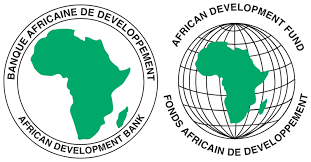AI for Africa: AfDB and Google Highlight Urgency of Inclusive AI Readiness
In his keynote address, Solomon Quaynor, Vice-President for Private Sector, Infrastructure & Industrialization at AfDB, emphasized that AI is not a luxury, but a strategic necessity.

- Country:
- Ivory Coast
At the 2025 Annual Meetings of the African Development Bank Group (AfDB), a powerful side event co-hosted with Google AI Research explored the continent’s AI readiness and its transformative potential to deliver sustainable, inclusive development across Africa. Held under the theme “The AI Revolution: How Will AI Support the Delivery of the African Development Bank’s 2024–2033 Ten-Year Strategy and the Transformation of African Economies?”, the 90-minute session brought together a distinguished panel of leaders, innovators, policymakers, and technologists from across Africa and beyond.
The event tackled one pressing question: What will it take for Africa to be AI-ready?
Opening with Vision: AI as an Essential Pillar of Africa’s Future
In his keynote address, Solomon Quaynor, Vice-President for Private Sector, Infrastructure & Industrialization at AfDB, emphasized that AI is not a luxury, but a strategic necessity. “AI is essential for Africa’s competitiveness, resilience, and long-term prosperity,” he said, urging policymakers and institutions to make deliberate, bold moves to embrace AI-driven transformation.
This sentiment reflected the ambitions of the Bank’s 2024–2033 Ten-Year Strategy, which frames digital transformation as one of the key levers for leapfrogging Africa’s development trajectory.
Laying the Foundations: Youth, Data, and Innovation
Caroline Kende-Robb, AfDB’s Senior Director of Strategy and Operational Policies, contextualized the panel in light of the Bank’s new strategy. She highlighted the two pillars that must underpin Africa’s AI journey:
-
Investing in youth: To foster a digitally skilled generation prepared for AI-driven economies.
-
Building data infrastructure: Creating the backbone for connectivity, storage, and trusted data exchange.
“Investing in youth and data infrastructure is no longer optional—these are the foundations upon which Africa must build its AI future,” she stressed.
Her remarks echoed the Bank’s call for technology-led development that is both locally grounded and globally competitive.
The Case for Contextualized AI: Insights from Google AI Research
Abdoulaye Diack, Program Manager at Google AI Research Africa, underscored the importance of developing inclusive and localized AI systems. He illustrated how AI, when designed to reflect African environments, could unlock breakthrough progress in:
-
Agriculture (precision farming, crop disease detection)
-
Education (personalized learning and language accessibility)
-
Climate adaptation (early warning systems, weather prediction)
-
Healthcare (diagnostic tools, patient management)
However, Diack also sounded a note of caution: “Without local data and inclusive models, Africa risks becoming a passive consumer rather than an active creator of AI solutions.”
Policy and Infrastructure: Getting the Ecosystem Right
Ibrahim Kalil Konaté, Côte d’Ivoire’s Minister of Digital Transition and Digitalization, advocated for continental cooperation, including harmonized AI governance frameworks, to enable responsible and cross-border deployment of AI technologies. His intervention aligned with the African Union’s broader goals of a digitally integrated Africa.
Robert Skjodt, CEO of Raxio Group, highlighted the urgent need for robust physical infrastructure, especially local data centers. With Africa holding just 1.3% of global data storage capacity, he argued that digital sovereignty depends on Africa’s ability to store, manage, and process its own data within the continent.
Ousmane Fall, Director of Private Sector Transaction Support at AfDB, called for bankable, scalable digital infrastructure projects that can attract long-term investment from both public and private sectors.
Ethical and Cultural Relevance: Building AI for Africans, by Africans
The conversation also turned to ethics, values, and cultural context. Moustapha Cissé, CEO of Kera Health Platforms and a pioneer in African AI research, emphasized that AI systems must reflect African social, cultural, and healthcare realities.
Similarly, Muthoni Karubiu, Chief Operations Officer at Amini, stressed the need for data sovereignty in Africa’s agriculture and climate strategies. “Access to localized, context-specific environmental data is essential,” she said, adding that control over data is integral to Africa’s economic autonomy.
The Path Forward: Human Capital, Infrastructure, and Data Sovereignty
Across the panel, three clear priorities emerged for Africa to build a future-ready AI ecosystem:
-
Human Capital Development Invest in AI literacy, training, and advanced education for Africa’s youth. The panel agreed that education systems must evolve rapidly to equip future professionals with AI-related competencies.
-
Digital and Data Infrastructure Expand cloud infrastructure, undersea cable connectivity, and national data centers. Without a solid digital backbone, AI deployment will remain aspirational.
-
Localized, Inclusive Data Ecosystems Africa must build datasets in its own languages and tailored to its socioeconomic contexts. These datasets are vital for training AI models that reflect the needs and realities of African citizens.
A Turning Point for Africa’s Digital Future
As the world moves deeper into the AI era, Africa stands at a critical crossroads. The panelists unanimously agreed that delayed investment in AI now would further widen existing development gaps, while early, strategic investment could help Africa leapfrog into a new era of digital prosperity and inclusive innovation.
The African Development Bank reaffirmed its commitment to ensuring that the continent’s AI journey is ethical, sovereign, and inclusive, aligned with its Ten-Year Strategy to promote sustainable, resilient, and technology-led growth.
For more information or to revisit this high-level session, visit: AfDB AI Side Event Recording










